Go back
Commercial publishers and the Sustainable Development Goals (SDGs): driving change or hindering progress?
19/07/2023
Leading up to the 2023 SDG summit in September, Nature has launched a series of editorials covering the SDGs. The first editorial raises the alarm that “UN’s Sustainable Development Goals are heading for the rocks” and urges “Researchers around the world …[to] do their bit to change that.” The elephant in the room, however, is that if research is not contributing as much as it could to the success of the SDGs, it is in large part because of the commercial exploitation and gatekeeping of the academic publishing system itself.
Extractive corporate behaviour in general– including that of the largest commercial publishers – has directly contributed to wrecking our world to the point that the international community had to come up with the SDGs, before the planet burns up and splits at the seams due to climate change, growing inequality, and conflict.
More specifically, the big commercial publishers’ ever-increasing publication fees and excessive profits are draining public funds away from research. This holds back scientific progress in all areas, including those that are crucial for reaching the SDGs. How can scientists be expected to “do their bit” to solve global issues if limited research funds are diverted away from research and into publishers’ multimillion profits?
Even more gallingly, most of the sustainability and climate change science is still behind publisher paywalls. As a result, the publications of researchers who actually are “doing their bit” remain largely inaccessible to readers who cannot afford expensive subscriptions.
Let us also not forget that the research done “around the world” – in the regions and by the communities most exposed to the harms of climate change, inequality, biodiversity loss, and poverty – is far less likely to be published in high-ranking international journals, because these journals overwhelmingly publish research from high-income countries.
In a show of commitment, the large commercial publishers have signed up to the UN SDG Publishers Compact, which allows them to gain respectability points for reducing paper waste at their headquarters and gives them the right to pin the SDG logo on their website. However, the SDG Publishers Compact does not require them to transform their harmful practices. On the contrary, we now know that while their editorials may exhort others to do more, at the same time, they may also, for example, support the fossil fuel industry and take money from the poorest countries in the world for their services. Such actions, in effect, directly undermine the SDGs.
Instead of telling researchers to “do their bit”, publishers truly committed to advancing the SDGs might consider doing their own bit.
If Springer Nature indeed wants science to solve global challenges, they could start by making all sustainability research open – with the same sense of urgency as that which applied to health research during the Covid-19 crisis.
In addition, they could stop asking for extortionate publishing fees, so that taxpayers’ money can actually support research where it is needed.
Academic publishers could do a lot to make sure that research fully contributes to the success of the SDGs. But until they take concrete steps, as those outlined above, their editorials on this topic are just cynical SDG washing.
Nora Papp-Le Roy
Nora is the cOAlition S Programme Manager, coordinating the work of the cOAlition S office at the European Science Foundation, and supporting research funders to implement Plan S and make full and immediate Open Access to scholarly publications a reality.
She has 20 years of experience promoting international scientific cooperation, global policies, membership engagement and advocacy. She has previously worked at the International Science Council in the field of global science for policy, and at the OECD in the fields of Green Growth and Policy Coherence for Development.
She holds degrees in Economic Sciences, International Relations, EU affairs and Advocacy.
View all posts by
Nora Papp-Le Roy


